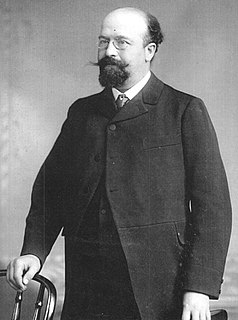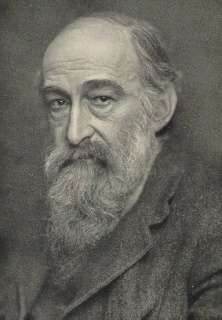A Quote by Pope Pius XI
Those wretches tainted with the error of Indifferentism and Modernism hold that dogmatic truth is not absolute, but relative: that is, that it must adapt itself to the varying necessities of the times and the varying dispositions of souls, since it is not contained in an unchangeable revelation, but is, by its very nature, meant to accommodate itself to the life of man.
Related Quotes
The principle itself of dogmatic religion, dogmatic morality, dogmatic philosophy, is what requires to be rooted out; not any particular manifestation of that principle. The very corner-stone of an education intended to form great minds, must be the recognition of the principle, that the object is to call forth the greatest possible quantity of intellectual power, and to inspire the intensest love of truth.
For us, mind has nature for its premise, being nature's truth and for that reason its absolute prius. In this truth nature has vanished, and mind has resulted as the idea arrived at being-for-itself, the object of which, as well as the subject, is the concept. This identity is absolute negativity, for whereas in nature the concept has its perfect external objectivity, this its alienation has been superseded, and in this alienation the concept has become identical with itself. But it is this identity therefore, only in being a return out of nature.
The more I study nature, the more I become impressed with ever-increasing force with the conclusion, that the contrivances and beautiful adaptations slowly acquired through each part occasionally varying in a slight degree but in many ways, with the preservation or natural selection of those variations which are beneficial to the organism under the complex and ever-varying conditions of life, transcend in an incomparable degree the contrivances and adaptations which the most fertile imagination of man could suggest with unlimited time at his disposal.
It must be therefore, since the enemies of the Jews belonged to the most diverse races, since they lived in countries very distant from each other, since they were ruled by very different laws, governed by opposite principles, since they had neither the same morals, nor the same customs, since they were animated by unlike dispositions which did not permit them to judge of anything in the same way, it must be therefore that the general cause of anti-Semitism has always resided in Israel itself and not in those who have fought against Israel.
It can be shown that an incorporeal and reasonable being has life in itself independently of the body... then it is beyond a doubt bodies are only of secondary importance and arise from time to time to meet the varying conditions of reasonable creatures. Those who require bodies are clothed with them, and contrariwise, when fallen souls have lifted themselves up to better things their bodies are once more annihilated. They are ever vanishing and ever reappearing.
There is no such thing as absolute truth and absolute falsehood. The scientific mind should never recognise the perfect truth or the perfect falsehood of any supposed theory or observation. It should carefully weigh the chances of truth and error and grade each in its proper position along the line joining absolute truth and absolute error.
Sentences are not different enough to hold the attention unless they are dramatic. No ingenuity of varying structure will do. All that can save them is the speaking tone of voice somehow entangled in the words and fastened to the page for the ear of the imagination. That is all that can save poetry from sing-song, all that can save prose from itself.
Thinking it selfish to dwell on her own sufferings, when in the midst of wretches, who had not only lost all that endears life, but their very selves, her imagination was occupied with melancholy earnestness to trace the mazes of misery, through which so many wretches must have passed to this gloomy receptacle of disjointed souls, to the grand source of human corruption.
Nature is man's inorganic body -- that is to say, nature insofar as it is not the human body. Man lives from nature -- i.e., nature is his body -- and he must maintain a continuing dialogue with it is he is not to die. To say that man's physical and mental life is linked to nature simply means that nature is linked to itself, for man is a part of nature.
Now, I stand alone on this rock, fighting the errors of this world, and establish the science of life by my works. What is my mode of warfare? With the axe of truth I strike at the root of every tree of error and hew it down, so that there shall not be one error in man showing itself in the form of disease.
The international equity question arises from the costs of climate change itself and mitigation varying greatly across countries. It is affected by the historical responsibility for current greenhouse gas emissions, which countries which were not responsible for what's in the atmosphere now think are very important. Currently rich countries don't think those issues are very important.
































